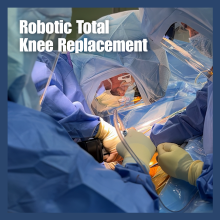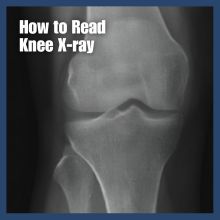13 Strategies to Relieve Stiff Joints
Do your hips and knees feel stiff when you wake up in the morning? Do you struggle to stand up after watching a long movie? There are several reasons why prolonged inactivity may cause joint stiffness and pain.
One of the most common reasons for joint stiffness is arthritis. You may have osteoarthritis, which affects many older adults as the result of the joints experiencing years of ordinary wear and tear. If you’re younger, osteoarthritis may still be the culprit or you may dealing with symptoms of inflammatory arthritis (rheumatoid arthritis, psoriatic arthritis, gout) and related conditions.
Stiffness related to osteoarthritis sometimes eases-up within 15 minutes or less after resuming activity. However, symptoms of arthritis tend to progressively become more persistent and severe.
Whatever the cause, morning stiffness can sometimes be alleviated or reduced. Try these strategies for finding relief.
RELATED ARTICLES:
- 5 Risk Factors for Osteoarthritis, Cory Calendine, MD
- Top 6 Arthritis Myths Busted, Cory Calendine, MD
Medical Treatment for Morning Joint Stiffness:
- Speak with your doctor. If your stiffness is persistent and/or progressive, your physician will often perform blood tests and examine your joints to make a diagnosis. Your detailed medical history can be very important since genetics and previous injuries can increase your risk for arthritis and joint pain.
- Consult a joint specialist. You may be referred to an orthopedic or rheumatology specialist. From advanced imaging to more invasive procedures, specialists can assist you to develop an effective treatment plan for joint stiffness and pain.
- Consider medication. There are some over the counter (OTC) and prescription medications that can help relieve arthritis pain and stiffness. It is important to adhere to recommended dosages and discuss all medication changes with a qualified healthcare provider.
- Attend physical therapy. Learning to move safely without damaging your joints can make you more comfortable and independent. A physical therapist will provide exercises to help you with daily activities.
- Surgery is sometimes a consideration. Most cases of arthritis can be managed without invasive procedures such as joint injections or joint replacement surgery. However, if your symptoms are severe, and other treatments have failed to provide relief - joint replacement are very effective at restoring mobility and relieving joint pain.
Home Remedies for Morning Stiffness:
- Lose weight. Excess pounds strain your joints, as well as your heart. Lighten up with healthy eating and regular exercise. (see Knee Pain and Weight Gain)
- Build strength. While it’s impossible to replace the cartilage you lose with age, you can increase your less muscle mass, strength, joint stability and balance. Lifting weights or exercises that use your body weight for resistance can help relieve joint stiffness and increase bone density. Stronger muscles give your joints extra support and can improve range of motion. (see Weightlifting Benefits for Seniors)
- Increase flexibility. Safe stretching fights stiffness too by relaxing tendons that naturally tighten when you sleep or are inactive. Yoga, pilates and basic stretches can easily be incorporated into your daily routine.
- Improve your diet. There’s little evidence to support claims about expensive supplements and miracle foods that cure arthritis. On the other hand, a diet low in processed foods and rich in nutrients limits inflammation. Eat more fatty fish, nuts, green vegetables, and cherries.
- Sleep better. Adequate rest is essential for healing. Go to bed and wake up on a regular schedule. Darken your bedroom and block out background noise with a fan or white noise machine. Research supports that efforts to prevent and treat chronic pain should target sleep disturbance as a point of primary prevention and intervention.
- Manage stress. Chronic tension can aggravate arthritis and most mental or physical conditions. Pain and stress are two sides of the same coin. Both challenge the body’s homeostasis and necessitate decision-making to help us adapt. Chronic stress and pain share a common physiologic and behavioral model of failure to extinguish negative events and memories. Relax with gentle music, meditation, or a warm bath.
- Apply heat. For pain relief without drugs, apply a warm compress to your sore hips or shoulders. Long-standing injuries usually respond more successfully to heat while ice is recommended for the first couple of days after a new event.
- Keep moving. Prevention is a sound strategy. When possible, take frequent breaks when you know you’ll be stuck in one place for a while. Shift your sleep position during the night and walk around while you’re on the phone.
Taking care of your joints will help you to sleep more restfully at night and move more comfortably in the morning and throughout the day. Maintain a healthy weight, avoid fatigue, and talk with your doctor if you need more assistance.








